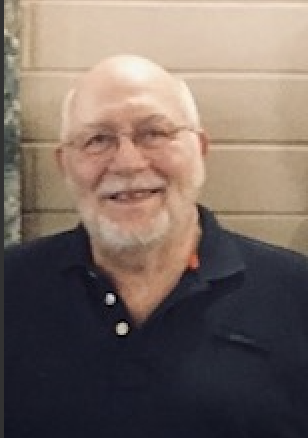SEFS researcher Darryll Johnson remembered for social science contributions

Darryll Johnson, a longtime School of Environmental and Forest Sciences researcher, has passed away.
Johnson was the longtime leader of the Cooperative Ecosystem Studies Unit (CESU) stationed at SEFS, which was preceded by the Cooperative Park Studies Unit in the College of Forest Resources. He started with SEFS in 1978 and retired in 2008.
The social science research he conducted has been meaningful for a number of national parks and for the National Park Service’s (NPS) national office. Because of his work, NPS employees have a positive working environment, visitors enjoy better experiences within our National Parks, and graduate students and collaborators know what good research looks like.
After he completed graduate studies at South Dakota State University, Johnson taught at a small college in South Dakota when, in 1978, he was recruited by his friend and colleague Don Field to work at the NPS Cooperative Park Studies Unit (CPSU). Headquartered at the time in the former College of Forest Resources, he was charged with developing an applied social science program for the NPS, which was just starting to use a science-based approach to assess interactions between people and natural resources.
Beginning in 1978, Johnson led studies in Alaska, Washington, Oregon, and California dealing with interactions between park visitors and the environment. He co-led a groundbreaking survey of NPS employee attitudes in the 1980s. Other projects included field experiments pertaining to the effectiveness of alternate trail-side sign texts, subsistence uses in Alaska national parks, visitor capacity, social dimensions of ecosystem management, market segmentation of NPS visitors, social impacts of military overflights, national park ethnographic overviews and assessments, and cultural resource inventories. One of the more complex social science projects was a study of the presence of cruise ships on visitors’ experiences in Glacier Bay National Park.
In 1988, he co-chaired a national workshop which led to publication of the landmark book Ecosystem Management for Parks and Wilderness with University of Washington Press. In 1993, he was one of the first social scientists to assess the concurrent effects of climate change on human and natural resources, convening an international workshop focused on Alaska and Canada. This led to the publication of Human Ecology and Climate Change, a book which proved to be prescient because many of its predictions have now come to pass.
Johnson mentored many graduate students in the basics of social science research: study design, survey design, and data analysis. He was known among his colleagues for his dedication to his work and organizational skills but also for his genuine caring about the lives and well-being of those with whom he worked. His personal and professional generosity toward students in particular was legendary, and his people skills contributed to his role as a human resources mediator with the NPS Pacific Northwest Region.
In 1993, NPS scientists were transferred en masse to the National Biological Survey and eventually to the U.S. Geological Survey, and Johnson co-led the Cascadia Field Station with Dr. David Peterson. By 2000, this morphed into the Pacific Northwest Cooperative Ecosystem Studies Unit (CESU), which paired regional universities, tribes, state and local government, and nongovernmental organizations with Federal partners to improve the scientific basis for managing federal lands. Johnson’s ability to gain the trust of partners was key to the success of the CESU, which to date has supported over 800 projects and distributed over $100 million. After he retired, he continued to work with students and colleagues.
Johnson was grounded with a strong work ethic, instilled in him through his upbringing on a farm in Kansas. He never forgot his roots, growing champion heritage tomatoes and other crops in his home garden. He was an excellent marksman and was very knowledgeable about ballistics and firearms. His wife Cherry, four daughters, and grandchildren were a source of great pride and kept him grounded during challenging times. Johnson will be greatly missed by friends and colleagues in the SEFS community and beyond.
To make a gift in memory of Darryll Johnson to the Friends of the School of Environmental and Forest Sciences Fund, you can make a gift online here. Please note in your comments that this gift is being made in memory of Darryll Johnson.
You can also give by phone at 1-877-UW-GIFTS (877-894-4387). Or you can give by mail at University of Washington, 4333 Brooklyn Ave NE, Box 359505, Seattle, WA 98195-9505. Please make checks payable to the University of Washington and reference that this is a memorial gift in tribute to Darryll Johnson to the Friends of the School of Environmental and Forest Sciences Fund (FOREDI).
If you are interested in making a gift via a wire transfer or a transfer of securities, please contact Zanne Gerrard, Associate Director for Donor Services and Development Operations, at sgerrard@uw.edu. She will assist you with the transfer information that you will need.
If you have additional questions about making a gift to the University of Washington, please see more information at https://www.washington.edu/boundless/ways-to-give/.